Azhagu sundaran anbinil varum
Amudha vaaridhi aruNaiyaan;
Mazhavidai poruL aruL padaithidu
Vadivila vadi vaanavan.
Word meaning
Azhagu, sundaram = beauty, also Bhagavan’s parents’ names; anbinil = in love, affection; amudham = nectar; vaaridhi = sea; aruNaiyaan = Bhagavan who is Arunachala himself; mazhu = weapon held by Shiva; vidai = bull, nandi; aruL = grace; vadivu = form.
Meaning
Born to the blessed couple Azhagammai and Sundarar, Ramana lives in (and as) Arunachala as an ocean of sweet grace. Just as the nameless and formless Supreme Divinity descended to the earth as Lord Shiva carrying ‘mazhu’ (among other weapons) and riding his bull Nandi, Ramana, who is grace personified, is seated majestically in Arunachala as form and formlessness.
Bhagavan was born to Azhagammai and Sundareswarar. They are referred to as Azhagu and Sundara. Coincidentally, their name means the same thing, beauty. We see this in the second verse of Bhagavan’s Aksharamana malai (from T.R.Kanakammal’s Nool Thirattu Urai):
Azhagu Sundram pol agamum neeyumutra
binnamai iruppom Arunachala
Meaning:
Arunachala! Azhagu and Sundaram while they seem to be different words they mean the same thing, beauty. Like that, while you and I may look to be different, in reality we are the same.
Explanation:
Azhagu, a Tamil word and Sundaram, a Sanskrit word while they seem different on the surface, in truth their meaning is the same. Like our eyes, which are two but what the eyes see is the same single object.
In the first verse Bhagavan worships Arunachala, the source of Self, in this verse he references his parents who are the source of his physical form. (Kanakammal writes Bhagavan worships ‘Uyirukkku ammaiappan’ in the first verse. Uyir is jiva, the life force within us all. Ammaiappan means mother and father.) Bhagavan’s parents are Azhagammai and Sundaresa Iyer. Like this Arunachala, you and I mean the same indivisible thing.
Azhagu and Sunadaram refer to jiva and the Lord respectively. All the saints and mahaans of the world have remembered their parents at some point in their writings. Thiruvalluvar, (the Tamil poet who composed Thirukkural), in his first verse mentions them as aadhi and bhagavan (the verse is: agara mudhala ezhuthellam aadhi baghavan mudhattre ulagu).
The ocean of grace that is Bhagavan sits in his throne majestically says SV (veetru iruththal is to sit majestically in a throne). While recounting the days when he used to go for ‘biksha’ on the streets of Tiruvannamalai, Bhagavan said he would stand outside a house and clap, someone would come and give him food, which he would eat and wipe the hand on his matter hair and go back to the hill. “Those days I used to feel like an emperor’, he used to recollect.
Dilip Kumar Roy, in Face to Face with Bhagavan says:
Dressed in a bare koupin (loincloth) he yet sat ensconced in grandeur of plenary peace and egoless bliss which we could but speculate upon, yet never fathom.
Bhagavan is both form and formless. “He is a link between what we call the concrete world and the Unmanifest”, says Ella Mailart, a Swiss devotee.
Lakshmana Swami, Gudur, says, “As I gazed at the scene I had the knowledge and the experience that the real Ramana Maharshi was not the body I saw before me, it was the formless effulgent Self …”
Ramaswami Pillai has had darshan of Rama in Bhagavan and also as Formlessness, just as Lord Shiva is formlessness and has the form of Arunachala.
Amudha vaaridhi aruNaiyaan;
Mazhavidai poruL aruL padaithidu
Vadivila vadi vaanavan.
Word meaning
Azhagu, sundaram = beauty, also Bhagavan’s parents’ names; anbinil = in love, affection; amudham = nectar; vaaridhi = sea; aruNaiyaan = Bhagavan who is Arunachala himself; mazhu = weapon held by Shiva; vidai = bull, nandi; aruL = grace; vadivu = form.
Meaning
Born to the blessed couple Azhagammai and Sundarar, Ramana lives in (and as) Arunachala as an ocean of sweet grace. Just as the nameless and formless Supreme Divinity descended to the earth as Lord Shiva carrying ‘mazhu’ (among other weapons) and riding his bull Nandi, Ramana, who is grace personified, is seated majestically in Arunachala as form and formlessness.
Bhagavan was born to Azhagammai and Sundareswarar. They are referred to as Azhagu and Sundara. Coincidentally, their name means the same thing, beauty. We see this in the second verse of Bhagavan’s Aksharamana malai (from T.R.Kanakammal’s Nool Thirattu Urai):
Azhagu Sundram pol agamum neeyumutra
binnamai iruppom Arunachala
Meaning:
Arunachala! Azhagu and Sundaram while they seem to be different words they mean the same thing, beauty. Like that, while you and I may look to be different, in reality we are the same.
Explanation:
Azhagu, a Tamil word and Sundaram, a Sanskrit word while they seem different on the surface, in truth their meaning is the same. Like our eyes, which are two but what the eyes see is the same single object.
In the first verse Bhagavan worships Arunachala, the source of Self, in this verse he references his parents who are the source of his physical form. (Kanakammal writes Bhagavan worships ‘Uyirukkku ammaiappan’ in the first verse. Uyir is jiva, the life force within us all. Ammaiappan means mother and father.) Bhagavan’s parents are Azhagammai and Sundaresa Iyer. Like this Arunachala, you and I mean the same indivisible thing.
Azhagu and Sunadaram refer to jiva and the Lord respectively. All the saints and mahaans of the world have remembered their parents at some point in their writings. Thiruvalluvar, (the Tamil poet who composed Thirukkural), in his first verse mentions them as aadhi and bhagavan (the verse is: agara mudhala ezhuthellam aadhi baghavan mudhattre ulagu).
The ocean of grace that is Bhagavan sits in his throne majestically says SV (veetru iruththal is to sit majestically in a throne). While recounting the days when he used to go for ‘biksha’ on the streets of Tiruvannamalai, Bhagavan said he would stand outside a house and clap, someone would come and give him food, which he would eat and wipe the hand on his matter hair and go back to the hill. “Those days I used to feel like an emperor’, he used to recollect.
Dilip Kumar Roy, in Face to Face with Bhagavan says:
Dressed in a bare koupin (loincloth) he yet sat ensconced in grandeur of plenary peace and egoless bliss which we could but speculate upon, yet never fathom.
Bhagavan is both form and formless. “He is a link between what we call the concrete world and the Unmanifest”, says Ella Mailart, a Swiss devotee.
Lakshmana Swami, Gudur, says, “As I gazed at the scene I had the knowledge and the experience that the real Ramana Maharshi was not the body I saw before me, it was the formless effulgent Self …”
Ramaswami Pillai has had darshan of Rama in Bhagavan and also as Formlessness, just as Lord Shiva is formlessness and has the form of Arunachala.

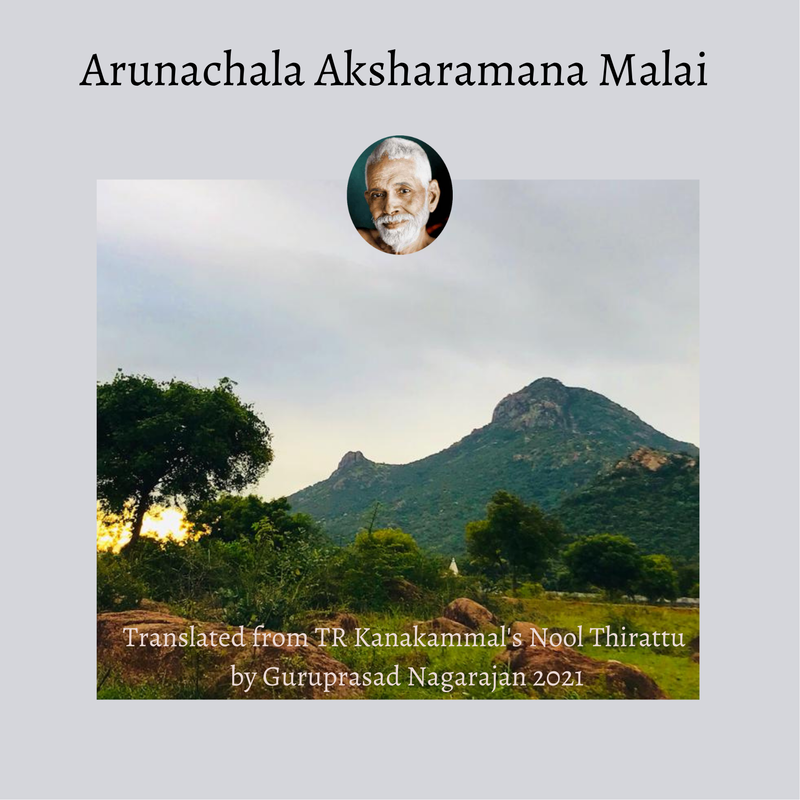
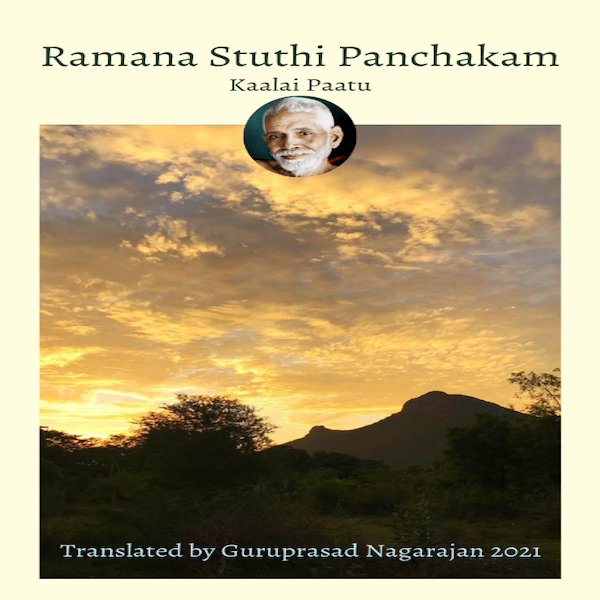
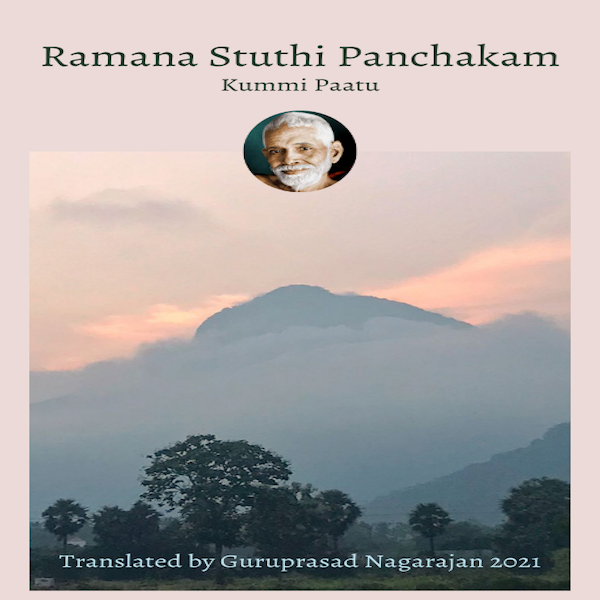
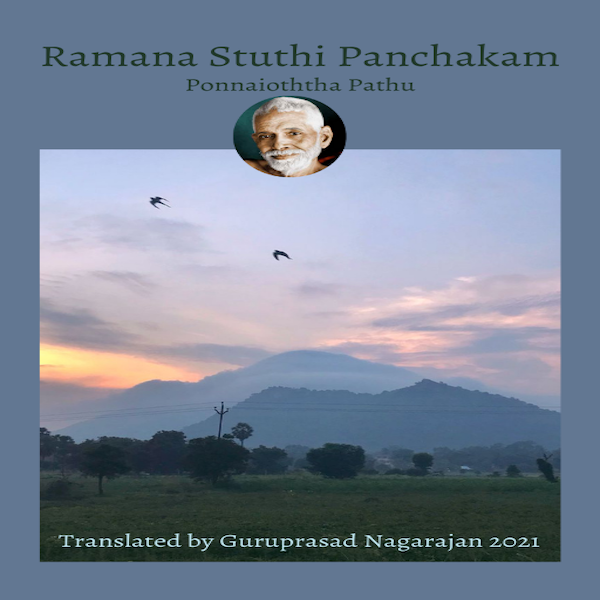
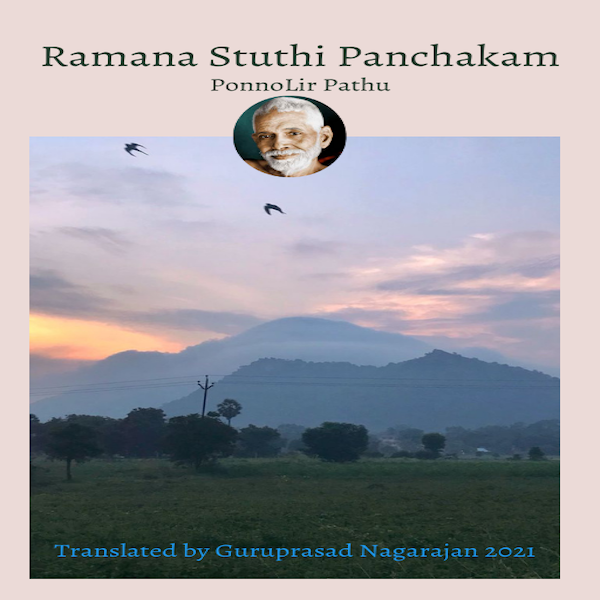
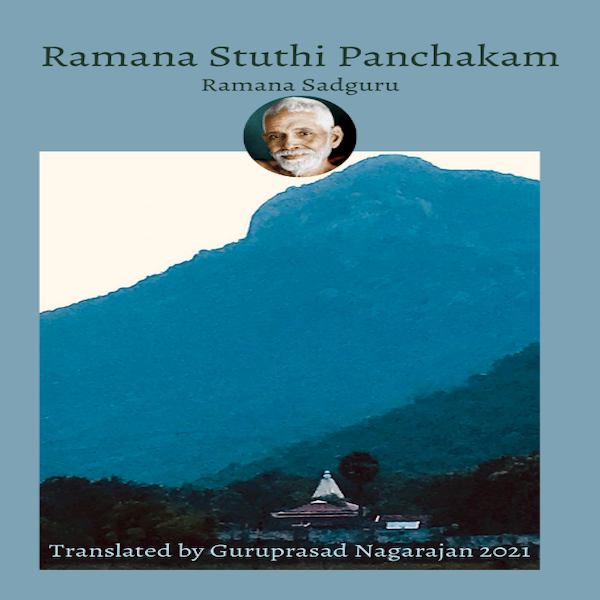
 RSS Feed
RSS Feed